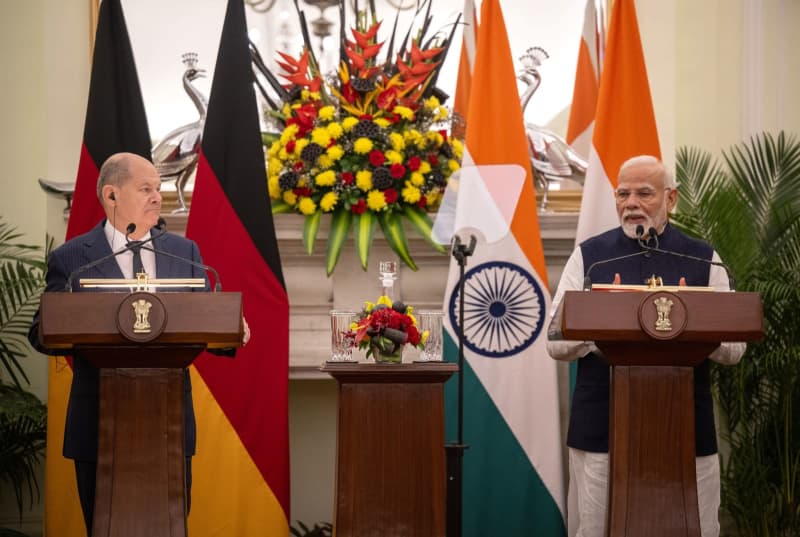Germany and India are moving closer together despite their differing views on Russia, recently formalized through a series of agreements during government consultations held in New Delhi. On this occasion, the two nations signed 27 agreements focused on enhancing cooperation in important areas such as renewable energy, research, and defense. German Chancellor Olaf Scholz emphasized the need for skilled workers in Germany’s labor market and urged quicker progress in the European Union’s negotiations with India regarding a potential free trade agreement. Indian Prime Minister Narendra Modi expressed a positive outlook on the bilateral relationship, stating in German, “Alles klar, alles gut,” conveying that “It’s all good.” This meeting marked the seventh round of government consultations aimed at strengthening bilateral ties while underscoring the importance both countries place on their partnership.
Despite their close ties, Germany and India have different stances concerning Russia, particularly in the context of the ongoing war in Ukraine. Modi had just returned from a trip to Russia, amidst an embrace with President Vladimir Putin at the BRICS summit, which highlighted India’s ongoing relationship with Moscow. In sharp contrast, Scholar received a mere handshake during his visit to New Delhi. Nevertheless, Modi praised Scholz’s efforts in giving the partnership between their two democracies renewed vigor and energy. He underscored the significance of further modernizing and strengthening their relations, especially considering India’s considerable population of over 1.4 billion and its status as the world’s fifth-largest economy.
Chancellor Scholz pointed out the vast potential for increased trade and investment opportunities between Germany and India. He specifically mentioned initiatives to attract skilled workers from sectors such as health, care, and IT to address labor shortages in Germany. Last week, the German Cabinet approved a 30-point plan aimed at easing immigration processes, demonstrating Germany’s intention to encourage skilled individuals to consider moving to Germany. On matters concerning the war in Ukraine, Modi reiterated that India has long maintained that conflicts cannot be resolved through warfare, indicating India’s willingness to act as a mediator for peace, in contrast to Germany’s clear support for Ukraine.
One focal point of their discussions revolved around the EU-India free trade agreement, which has been in talks for 17 years without significant progress. Scholz urged for “swift progress,” expressing optimism that these negotiations could culminate in months rather than years if both sides collaborate effectively. Economy Minister Robert Habeck echoed this sentiment, advocating for a fresh start in negotiations that had hit a standstill in 2013 until they resumed in 2022. Key obstacles include India’s high tariffs on automobiles and concerns surrounding the protection of intellectual property in pharmaceuticals, along with market access issues in agriculture—issues particularly relevant to India.
Cooperation in the military domain also surfaced as a critical topic, particularly as India’s defense sector remains heavily reliant on Russian military equipment. Germany aims to diversify India’s defense supply chain and is in discussions regarding the construction of six submarines for the Indian Navy through ThyssenKrupp Marine Systems. Scholz noted the need for more collaboration, particularly with respect to countering dependencies on nations like China, emphasizing the strategic importance of critical raw materials and technologies. A German frigate and supply ship are currently participating in joint maneuvers off the Indian coast, a show of military cooperation aimed at fostering stronger ties.
Finally, Modi emphasized the potential for foreign investment in India, particularly in climate-friendly hydrogen production and the semiconductor industry. He highlighted that India provides an excellent platform for investment in these cutting-edge sectors and noted the growing opportunities driven by advancements in artificial intelligence (AI). There is significant ongoing development in infrastructure, including expansions of the railway network and new airport constructions. As part of the agreements signed with Germany, both nations formally committed to enhance the exchange of sensitive information through a security agreement. This framework aims to facilitate deeper collaboration in security policy and defense technology, showcasing a multi-faceted approach to their evolving partnership.

